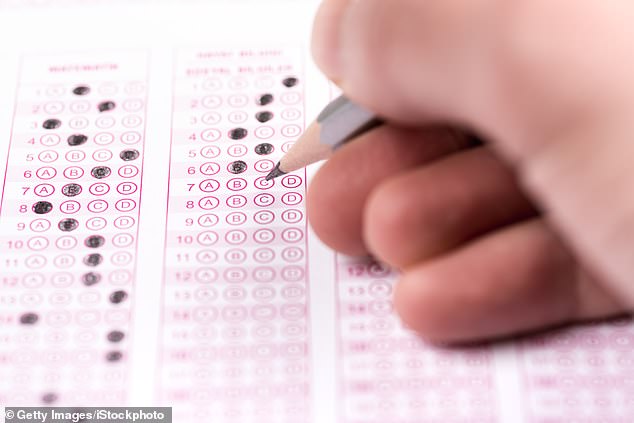Smartest states in the US REVEALED – based on 10 metrics including IQ and exam grades
Although the average IQ score in the US has declined over the years, individual states have seen an increase that sets them apart from the crowd.
Researchers from the University of Technology Sydney (UTS) analyzed ten metrics, such as exam scores and IQs, which were given a numerical score and summed to reveal the smartest states.
The team found that Massachusetts, home to Harvard and MIT, took first place with an overall score of 81.63, which was boosted by its average IQ score of 104.3 and high graduation rate.
New Hampshire ranked second with an intelligence score of 79.52, based on the highest literacy and numeracy rates in the country.
However, New Mexico came in last on the list, with an overall score of 17.74 because it had one of the lowest scores on the SAT and ACT tests.
Massachusetts, New Hampshire and Minnesota have named the Gold, Silver and Bronze states the “smartest” states in the union, according to new analysis from the University of Technology Sydney Online (above). The researchers combined 10 data points to create their rankings
The new study follows a 2023 report from the World Population Review, which found that the average IQ score across the US fell from 100 to 98 last year – which some experts say was the first time the numbers have fallen since the start of following.
But the education researchers with the University of Technology Sydney (UTS) Online – which conducted the new state-by-state analysis – only considered “average IQ” as 15 percent of the 100 percent total measurements used in their system.
Both the number of college graduates and the average SAT and ACT scores statewide each counted for 15 percent, in addition to those IQ scores.
The high school graduation rate was 10 percent, as were literacy, math, or “numeracy” rates.
Innovative measures such as Colleges per Capita and each state’s share of the U.S. Bureau of Economic Analysis’ State Value Added for Arts and Culture Production (ACPSA) score each contributed 5 percent to the total score (see breakdown below).
As home to Harvard University and many other renowned institutions, Massachusetts may have benefited from that five percent increase in the rankings.
“The state, home to MIT and other prestigious universities, also had the highest graduation rate in the country,” UTS Online researchers said in a statement.
Adding: ‘The state has the highest average IQ, at 104.3.’
“All of these factors put Massachusetts at the top of the list in both intelligence and education,” the authors said.
To give an idea of the spread created by UTS Online’s ‘intelligence score’ system: Massachusetts topped the list with an 81.63/100 and New Mexico’s score at the bottom of the list was 17.74/ 100.

Education researchers at the University of Technology Sydney Online, who conducted the new state-by-state analysis, only considered “average IQ” as 15 percent of the 100 percent total used in their system. Statewide average SAT and ACT scores also counted as 15 percent
According to this UTS analysis, Vermont came in fourth with an “intelligence score” of 75.60/100.
Residents of the “Green Mountain State” stood out for their high literacy and numeracy rates, as well as a high high school graduation rate of 93.3 percent.
Vermont also had the third-best average IQ score in the US, although that apparent overall aptitude did not place the state in the top 10 on other standardized tests such as SAT and ACT scores.
Washington – which was the fifth smartest state with a score of 69.20/100 – benefited greatly from a high ACPSA score, meaning its artistic and cultural industries helped the nation contribute 9.5/100 to their intelligence score.
Washington students also aced standardized tests, landing in the top 10 for SAT, ACT and NAEP contributions to the overall score.
The remote Montanans ranked sixth, with an intelligence score of 71.49/100, with one of the highest average IQs in the country: 103.4.
The state was also found to have one of the highest literacy rates in the country.
“A significant number of states are falling behind in their education. Graduate numbers are declining and standardized test scores are stagnating, raising concerns about the future of our country’s workforce,” a UTS Online spokesperson warned.
The researchers from the Sydney, Australia-based university recommended that US state officials should consider “increased funding for schools, investment in quality teachers and a shift toward promoting critical thinking skills.” […] to empower students.’
“States at the higher end of the list should remain alert,” they added, “and continue to push to maintain the momentum and standards they have set.”
